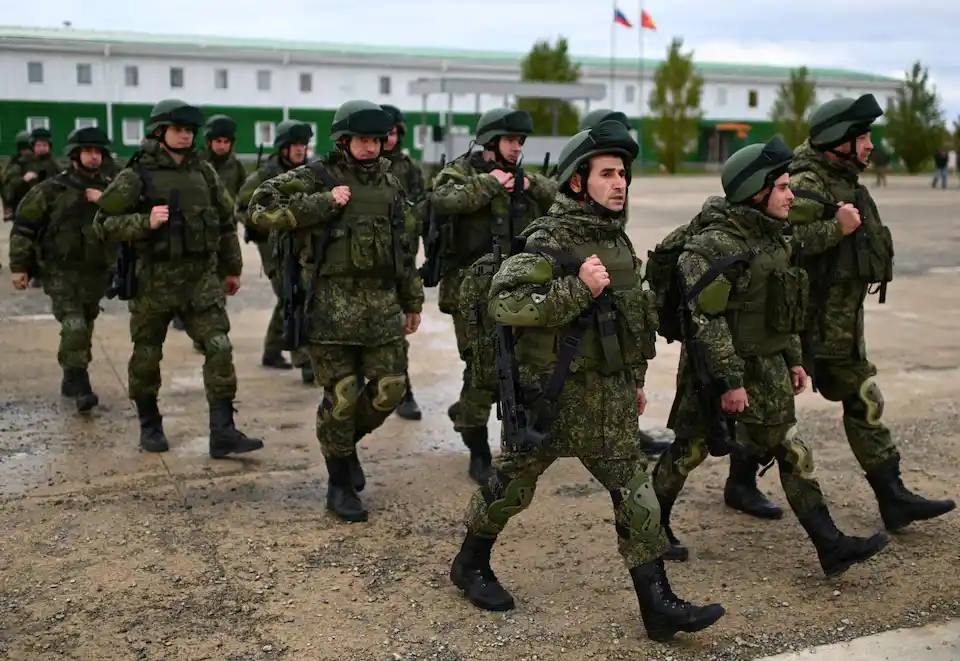Government Approves Peacetime Deployment of Reservists
The Government Commission on Legislative Activities has approved a Defense Ministry proposal that would allow the deployment of reservists for military operations abroad during peacetime, RBC reported, citing its sources.
Currently, reservists — citizens in the reserve who have signed a contract with the Ministry of Defense to join the mobilization reserve — can be called up only during mobilization or wartime.
The proposal includes amendments to several key laws: “On Defense,” “On Military Duty and Military Service,” and “On the Status of Servicemen.”
A new legal concept — “special training assemblies” — would be added to the law “On Military Duty and Military Service.” These assemblies could be held to carry out specific missions in the event of armed conflicts, counterterrorism operations, or the deployment of Russian forces abroad. Participants would be drawn from the Armed Forces’ mobilization human reserve.
According to the draft, the procedure for conducting these assemblies will be determined by the president, and their duration will not exceed two months.
Observers note that while the proposal appears technical, its underlying purpose remains obscured by bureaucratic language. Yet certain implications are already evident.
Key Factors Behind the Proposal
1. Recurring Mobilization Rumors
Rumors of an imminent new mobilization have circulated for months, often seen as tools for gauging public sentiment through social testing rather than reflecting real plans.
2. The Need for a Larger Army
While recruitment currently maintains stable troop levels with slight growth, the pace is insufficient for strategic military goals. To achieve meaningful progress on the front lines, the Russian army requires additional reserve units.
3. The 2022 Mobilization Experience
The partial mobilization of 2022 exposed numerous logistical and social problems. The fact that it has not been repeated since suggests that the Kremlin seeks to avoid the same backlash.
What the Legal Changes Could Mean
Training assemblies for reservists already exist, but under current law, participants cannot be sent into combat without a formal mobilization or declaration of wartime status.
The proposed amendments would effectively define a limited-scale war in law — normalizing what was previously treated as an exceptional situation. The mention of reservists in the bill may be only the first step, paving the way for broader changes that could eventually include all citizens with military obligations.
At the same time, this legal mechanism reduces the likelihood of a full-scale mobilization — a scenario many Russians fear. If the goal were a larger mobilization effort, there would be no need to legally codify a lower level of engagement in the conflict.
A Recruitment Tool in Disguise
There is also speculation that during these assemblies — which are mandatory under law — participants might be encouraged to sign longer contracts or formally join the mobilization reserve.
Separated from civilian life, work, and family, and immersed in a military environment, some men may agree to stay. With skilled recruiters and the right psychological approach, even a small percentage of volunteers could significantly boost enlistment rates.
This approach would simultaneously strengthen the army, train the reserve force, and increase manpower — without the political and social risks of declaring another mobilization.
A Step Toward Permanent Wartime Readiness
While presented as a routine legislative measure, the initiative marks a subtle but crucial evolution in Russia’s military doctrine. By granting legal authority to deploy reservists abroad without declaring war or mobilization, Moscow gains greater operational flexibility and plausible deniability for extended military engagements.
This move blurs the line between peace and war in Russian law — effectively institutionalizing what analysts call the Kremlin’s “grey zone” strategy: maintaining a state of continuous low-level conflict while avoiding the political costs of formal mobilization.
Domestically, the measure could help test the loyalty and readiness of the mobilization reserve while boosting recruitment through “training assemblies.”
If passed, the amendments would further entrench the logic of militarization within Russia’s legal framework — turning the notion of constant readiness into a permanent feature of the state.
In effect, it is the codification of a “forever mobilized” society — one capable of waging war without ever officially declaring it.


















